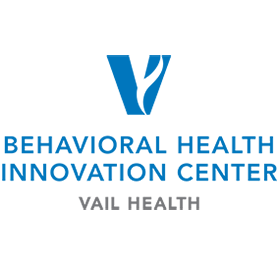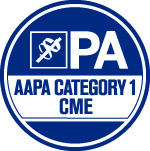
Novel Approaches to Behavioral Health Innovation: Keeping the Psychedelic Renaissance From Going Off the Rails-Enduring

Some psychedelic assisted therapies, such as MDMA for posttraumatic stress disorder and psilocybin for major depression, are either approaching the end of clinical trials or in the midst of clinical trials that may soon lead to FDA approval. But a prescribed combination of drug plus therapy is a new territory for both clinicians, regulators, and patients. Because of this, the question of how these combined therapies will actually be administered remains an open one of some urgency. In this talk, Andrew Penn, MS, PMHN (Clinical Professor of Nursing, UC San Francisco) and Charles Raison, MD (Director of the Vail Health Behavioral Health Innovation Center) will explore the implications, opportunities, and challenges of this change in how we treatment mental illness from the perspective of multiple stakeholders.
Elements of Competence
This educational activity is designed to change learner competence and focuses on the following competency areas:
- The American Board of Medical Specialties: Patient care and procedural skills, Medical knowledge
- Nursing: Employ evidence-based practice
- Center for the Advancement or Pharmacy Education: Health and wellness, Interprofessional collaboration, Learner, Patient-centered care
- Pharmacy Technician Certification Board: Pharmacology
- Interprofessional Education Collaborative: Interprofessional Communication
- Diversity, Equity, and Inclusion: Engage in self-reflection, Value diversity in the clinical encounter
Intended Audience
This activity is designed for Psychologists, Pharmacists and Pharmacy Technicians, Physicians, Nurses, Physician Assistants, Social Workers, and other behavioral health clinicians.
Learning Objectives
As a result of participation in this educational series, members of the healthcare team will be able to:
- List six stakeholders in the psychedelic space and their key interests
- Describe key knowledge gaps in the use of psychedelic asisted therapy (PAT)
- Identify patients that current studies indicate would be most likely to benefit from PAT
Andrew Penn, MS, PMHNP is a psychiatric nurse practitioner, clinical professor at the UC San Francisco School of Nursing, and a researcher on psychedelic therapies at the UCSF Translational Psychedelic Research Program (TrPR). He has been an investigator on studies examining MDMA assisted therapy for PTSD, on psilocybin assisted therapy for people with Parkinson’s disease and depression; with bipolar 2 depression; and chronic pain. He was a co-PI on the phase 2 study of psilocybin assisted therapy for major depression, recently published in JAMA. An internationally invited speaker, he has taught at SXSW, TEDx, Aspen Institute, and the Singapore Ministry of Health. Additionally, he has published widely on psychedelic therapies and their intersections with nursing and is the cofounder of the Organization of Psychedelic and Entheogenic Nurses (OPENurses.org). He can be found at AndrewPennNP.com
Policy on Faculty and Sponsor Disclosure
It is the policy of the University of Wisconsin–Madison Interprofessional Continuing Education Partnership (ICEP) to identify, mitigate and disclose all relevant financial relationships with ineligible companies* held by the speakers/presenters, authors, planners, and other persons who may influence the content of this accredited continuing education (CE). In addition, speakers, presenters and authors must disclose any planned discussion of unlabeled/unapproved uses of drugs or devices during their presentation.
*Ineligible companies are those whose primary business is producing, marketing, selling, re-selling, or distributing healthcare products used by, or on, patients. The ACCME does not consider providers of clinical services directly to patients to be ineligible companies.
Name | Role | Financial Relationship Disclosures | Discussion of Unlabeled/Unapproved uses of drugs/devices in presentation? |
| Andrew Penn, MS, PMHNP | Speaker | filament (Contractor), Alexander Shulgin Research Institute (Contractor), osmind (Contractor), Alkermes, Inc. (Contractor), tactogen (Contractor), compass pathways (Contractor), beckley institute (Contractor), Usona (Contractor), mindmed (Contractor), Otsuka America Pharmaceutical (Contractor) | Yes |
| Casey Wolfington, PhD | Clinical Director/ Planning Committee Chair | No relevant relationships with ineligible companies to disclose | No |
Marshall Thomas, MD | Planner | No relevant relationships with ineligible companies to disclose | No |
Angelia Dreher, PharmD | Planner | No relevant relationships with ineligible companies to disclose | No |
Whitney Georges, RN | Planner | No relevant relationships with ineligible companies to disclose | No |
Tracey Branch, MSW | Planner | No relevant relationships with ineligible companies to disclose | No |
Robert Brown, CPhT | Planner | No relevant relationships with ineligible companies to disclose | No |
Charles Raison, MD | Planner | Otsuka America Pharmaceutical (Independent Contractor - Consultant), | Yes |
Tania Engle, PA | Planner | No relevant relationships with ineligible companies to disclose | No |
| Brielle Wenthur | Peer Reviewer | No relevant relationships with ineligible companies to disclose | No |
 | In support of improving patient care, this activity has been planned and implemented by the University of Wisconsin–Madison ICEP and Vail Health. The University of Wisconsin–Madison ICEP is jointly accredited by the Accreditation Council for Continuing Medical Education (ACCME), the Accreditation Council for Pharmacy Education (ACPE), and the American Nurses Credentialing Center (ANCC), to provide continuing education for the healthcare team. |
Credit Designation Statements
American Medical Association (AMA)
The University of Wisconsin–Madison ICEP designates this enduring material for a maximum of 1 AMA PRA Category 1 Credits™. Physicians should claim only the credit commensurate with the extent of their participation in the activity.
American Nurses Credentialing Center (ANCC)
The University of Wisconsin–Madison ICEP designates this enduring material for a maximum of 1 ANCC hours.
Accreditation Council for Pharmacy Education (ACPE)
The University of Wisconsin–Madison ICEP designates this knowledge-based activity for 1 hour or 0.1 CEUs. Credit can be earned by successfully completing the activity and the evaluation. Credit will be provided to NABP CPE Monitor within 60 days after the activity completion.
UAN:
Pharmacists: JA0000358-9999-24-063-H99-P
Pharmacy Technician: JA0000358-9999-24-063-H99-T
Association of Social Work Boards (ASWB)
 | As a Jointly Accredited Organization, the University of Wisconsin–Madison Interprofessional Continuing Education Partnership (ICEP) is approved to offer social work continuing education by the Association of Social Work Boards (ASWB) Approved Continuing Education (ACE) program. Organizations, not individual courses, are approved under this program. Regulatory boards are the final authority on courses accepted for continuing education credit. Social workers completing this course receive 1.0 general, live continuing education credits. |
American Psychological Association (APA)
 | Continuing Education (CE) credits for psychologists are provided through the co-sponsorship of the American Psychological Association (APA) Office of Continuing Education in Psychology (CEP). The APA CEP Office maintains responsibly for the content of the programs. |
American Association of Physician Assistants (AAPA)
 | The University of Wisconsin–Madison ICEP has been authorized by the American Academy of PAs (AAPA) to award AAPA Category 1 CME credit for activities planned in accordance with AAPA CME Criteria. This activity is designated for 1 AAPA Category 1 CME credits. Approval is valid until 6/30/2026. PAs should only claim credit commensurate with the extent of their participation. |
Continuing Education Units
The University of Wisconsin–Madison ICEP, as a member of the University Professional & Continuing Education Association (UPCEA), authorizes this program for 0.1 continuing education units (CEUs) or 1 hours.
Available Credit
- 1.00 AAPA Category 1 CME
- 1.00 ACPE Contact Hours - Pharmacist
- 1.00 ACPE Contact Hours - Pharmacist Technician
- 1.00 AMA PRA Category 1 Credit™
- 1.00 ANCC Contact Hours
- 1.00 APA CE Credits
- 1.00 University of Wisconsin–Madison Continuing Education Hours
- 1.00 Approved for AMA PRA Category 1 Credit™
Click BEGIN to register
Registration for this activity can only be completed through the ICEP Learning Portal. Attendee registrations made through any other sites cannot be honored. UW-Madison ICEP is not able to refund fees paid through unaffiliated registration sites, such as eMedEvents.com, MedConfWorld.com, EventEgg.com, and 10times.com. Please report any unauthorized websites or solicitations for registrations to [email protected].
Accessibility
If you need anything to participate in this program, please contact [email protected].
Questions
For questions about registration, please email [email protected]. For general questions about this series, please contact Pam French at [email protected]
Required Hardware/software
Free, current version of Chrome, Firefox, Safari, or Microsoft Edge. Some older browsers and Internet Explorer could produce error messages or not display the content correctly.

 Facebook
Facebook X
X LinkedIn
LinkedIn Forward
Forward